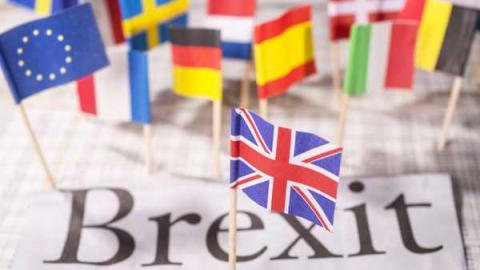
Brexit, a Slap in the Face of the Financial Integration Process
Patricio Valenzuela, MIPP researcher and Professor from Department of Industrial Engineering, Universidad de Chile
In the last four decades, the global economy has gone through a process of financial integration principally guided by the most developed economies in the world. In Europe, a historical effort to establish this integration process was the European Union trade celebrated in Maastricht, on 1992. This accomplishment generated a political community under the rules of the law, whose fundamental principle is based on the free transactions of goods, people, services and capital. The most recent economic policies oriented to promote the financial integration include the Banking Union, a set of initiatives –created in response to the 2008 financial crisis- that attempt to generate a safe and stable financial sector by means of a deeper integration of the E.U. banking system.
On June 23, this process of global integration, and particularly the one established in Europe, has suffered a stumble due to a referendum by which the British citizens decided to leave the European Union. While the triumph of the Brexit campaign (term which combines ‘Britain’ and ‘exit’) was obtained by exacerbating the costs of the migrant crisis in Europe, the opposing campaign was not successful enough to inform the citizens about the huge benefits of the regional integration with all its aspects. As a result, the British have chosen to be deprived of benefits they currently enjoy but probably do not know they will lose as a consequence of the Brexit. Many of these benefits come from the financial integration itself.
Conclusive research has empirically demonstrated some of the benefits of the financial integration, as for example, the tendency to reduce the costs of external capital, the development of a stronger domestic financial market, more liquidity for financial assets, the promotion of public and private investment, and the improvement of the companies’ productivity.
The uncertainty about how the Brexit will be implemented and its potential setback in the process of financial integration has immediately generated some losses. For example, Standard & Poor’s lowered the qualification risk of the long-term foreign exchange in the U.K. from AAA to AA, arguing that the Brexit could produce a decline in the economic perspectives and a weakening in the financial sector. Furthermore, Moody’s classified as negative the credit perspectives of eight out of twelve banks operating in London. The stocks of such rating agencies reflect not only a future raise in the cost of the U.K.’s financing but also an increment in all the costs of the economy agents, which is what eventually will reduce the investment opportunities, and therefore, the economic growth.
While the potential losses of some of the E.U. benefits as a consequence of the Brexit have produced immediate market reactions, the most important costs will be found out when the U.K.’s process of leaving the E.U. has finished. In the financial sector, these costs will be higher if the restrictions of the free movement of capital (either administrative or based on markets) are stricter. The level of such restrictions will depend on how the new relationship between both parts is managed and solved. The U.K. could choose for bilateral agreements (such as the treaties adopted by Switzerland) which would guarantee its access to the common market of the E.U. in some sectors (as the financial one), while maintaining independence in others. Another option would be to adopt a Norwegian-style agreement that integrates the European Economic Area, which means to adopt most of the E.U. policies in relation to the European market, with the exclusion of certain policies concerning taxation, justice, national security, and currency union.
In order to reduce the financial costs of the Brexit, it is crucial that the transition towards a new regulatory framework for both parts involved consider the good effects the financial integration process has brought to the development of financial markets in the region and the strengthening of London as a global financial center. For example, it is important that policy makers analyze that nowadays a big number of financial institutions of countries outside the E.U. operate within the block from London (the so-called passporting). Furthermore, it is important to think about the difficulties to visualize a future when the European treasury bonds and euros transactions are made by a financial institution outside the E.U.
In the interests of the common good, let us hope the transition to a new relation between the United Kingdom and the European Union will not be a new slap in the face of the integration process that the Europeans themselves constructed with effort and conviction.
Picture by The Times.
MIPP Chile 2025